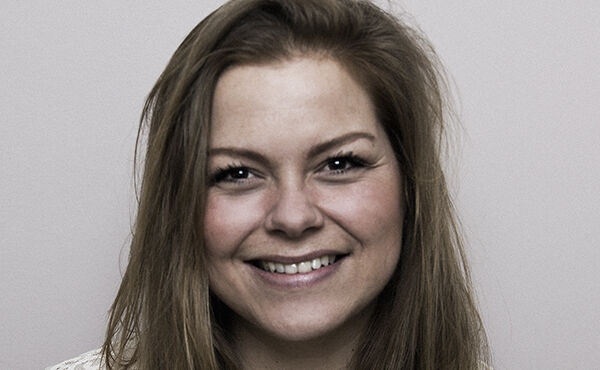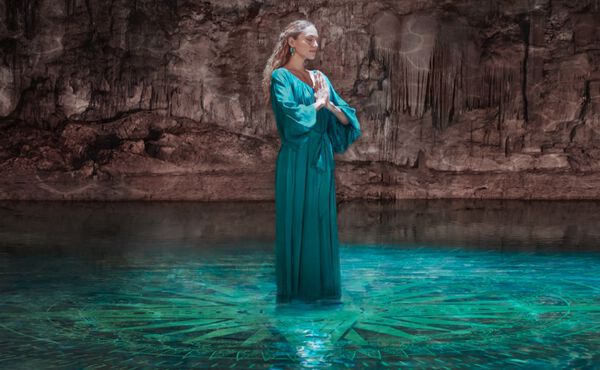Do dreams mean anything? Can you uncover your subconscious wishes and desires by interpreting your dreams?
Dreams are fascinating windows into the workings of our mind. There is still much that we don’t know about them, but they are as old as time and connect all mankind.
The ground disappears beneath your feet, the landscape shrinks far below and a cool wind rushes across your face. You stretch your arms out – you’re flying! It feels so real, so exhilarating. And then you wake up. It was ‘just’ a dream, you tell yourself. But you can’t help but wonder, what does it mean?
Across eons and cultures, people have looked to their dreams for wisdom or guidance. More than mere nocturnal reveries, dreams seem to belong to another realm, where the rules of daily life don’t apply. As our unconscious self roams free, the line between fantasy and reality becomes fluid in a mind-bending mix where anything is possible.

Divine gateway
The sense of the one world flowing into another when we close our eyes means that dreams are often seen as a gateway to a spiritual sphere. The Hindi god Vishnu dreams the universe into being while in a cosmic sleep, Native American tribes have long used dreams to communicate with ancestral spirits, and ancient Egyptians believed that dreams held messages from the gods. They would sleep on temple ‘dream beds’ and special priests were on hand to make sense of it all upon waking. We can also understand them, thanks to the Egyptian Dream Book found near the Valley of the Kinds, replete with dreams of eating crocodile flesh, splitting stone and tending monkeys. Dating back to 1350 B.C., it is the world’s oldest surviving dream document.
Over three thousand years later, our dreams continue to captivate us today. In Japan, hatsuyume – the first dream of the New Year – is thought to predict your fortune for the year ahead. Dreaming of Mount Fuji or a hawk is seen as especially lucky. Yet, rather than foretelling the future, research indicates that dreams actually have more to do with our immediate past; a way for our minds to process the events of the day.
Why do we dream?
People still don’t entirely agree on the why of it all. There are, however, some common beliefs and theories. One is that it’s a simple after-effect of processing memories made during the day. During REM sleep, our brain processes and stores new information and creates long term memories, and it’s thought that dreaming is a part – or side effect – of this process. Also known as the activation-synthesis model developed by J. Allan Hobson and Robert McClarley, who posited that the physiological processes of the brain cause dreams.
On a more meaningful level, if you like, some feel dreams are actually an extension of our waking consciousness, almost like a therapy session that plays out while you’re sleeping. It’s a way for us to work through our emotions, allowing us to sleep soundly despite inner turmoil. “Our dreams mirror the desires and aspirations of our psyche,” says dream expert Machiel Klerk. “By interpreting these dreams, we can align ourselves with our inner energy and find a sense of purpose and fulfillment.”
Some of us may have relatively ‘mundane’ dreams that reflect our daily life but some may dream more in metaphors and symbols. In this case, “adopting a more poetic perspective when interpreting our dreams, we can unlock their deeper meanings. Aligning ourselves with the suggestions of our unconscious allows us to navigate life's journey more joyfully,” says Klerk. “I believe dreams appear to offer a genuine reflection of our unconscious processes.”
Although their exact mechanicsare still up for discussion, you could say that dreams offer an added layer, enriching our daily experience as night after night we discover the uncharted wilds of our innermost imaginings. As British author Neil Gaiman says: “People think dreams aren't real just because they aren't made of matter, of particles. Dreams are real. But they are made of viewpoints, of images, of memories...” And these, of course, are every bit as important. Where else in life can you simply close your eyes and touch the sky?
What do dreams mean?
Though there’s no definitive proof, dreams are usually autobiographical thoughts based on your recent activities, conversations, or other issues in your life. However, there are some popular theories on common dream themes and what they are thought to symbolise:
Apocalypse: This indicates major changes or transformations. It may also allude to fears about the future or concerns about societal or personal upheaval.
Being Watched: This symbolises feelings of being scrutinised or judged by others. It may denote a sense of insecurity or paranoia.
Car Accident: Represents feelings of losing control or direction in life. It can indicate a fear of failure or unexpected obstacles.
Chased: Often reflects avoidance of a situation or fear of confrontation. It can symbolise feeling overwhelmed by responsibilities or emotions.
Death: Typically represents a metaphorical ending or transition rather than a literal death. It could signify the end of a phase in life or the fear of change.
Falling: Suggests a loss of control or insecurity in waking life. It may reflect feelings of failure or inadequacy.
Flying: Symbolises freedom and liberation from constraints. It can indicate a desire for independence or the ability to rise above difficulties.
House Fire: Reflects inner turmoil or intense emotions. It may suggest a need to confront and release pent-up feelings or address unresolved conflicts.
Late: Symbolises anxiety about deadlines, obligations, or missed opportunities. It can mean a fear of failure or the pressure to meet expectations.
Lost: Reflects feelings of confusion or uncertainty in waking life. It may indicate a lack of direction or difficulty finding one's path.
Meeting a Celebrity: Suggests desires for recognition, success, or validation. It can indicate a longing for admiration or a need to feel special.
Naked in Public: This dream suggests vulnerability and a fear of judgement. It may also symbolise a desire for honesty and openness.
Pregnant: Represents creativity, new beginnings, and potential. It can indicate the birth of ideas or projects, even if not related to actual pregnancy.
Snakes: Denote hidden fears or subconscious desires. It can indicate transformation, healing, or temptation, depending on the context of the dream.
Taking an Exam: Reflects feelings of being evaluated or tested in waking life. It may indicate a fear of judgement or a need to prove oneself.
Teeth Falling Out: Often associated with concerns about appearance, communication, or confidence. It can signify feeling powerless or experiencing a loss of control.
Trapped: Signifies feelings of being stuck or powerless in a situation. It may denote a need to break free from limitations or explore alternative solutions.
Unable to Move: Known as sleep paralysis, this dream reflects feelings of being trapped or paralysed in waking life. It may occur during periods of stress or anxiety.
Unprepared for an Exam: Suggests feelings of inadequacy or a fear of failure. It can indicate a lack of confidence in one's abilities or readiness for a challenge.
Walking Barefoot: Symbolises grounding and connection to nature. It can relate to a desire for simplicity, freedom, or a return to basics.
Walking or Driving in the Dark: Suggests feelings of uncertainty or confusion. It may denote a need to trust one's instincts or seek guidance in navigating challenges.
Water: Represents emotions and the subconscious mind. Clear water may signify clarity and purification, while murky water can mean confusion or emotional turmoil.
Winning the Lottery: Reflects desires for wealth, success, or abundance. It can denote hopes for financial security or a longing for a life of ease and luxury.
Why not try keeping a dream journal? When you wake up, write down what you remember from your dreams and, as time goes on, you might start to notice some patterns.







